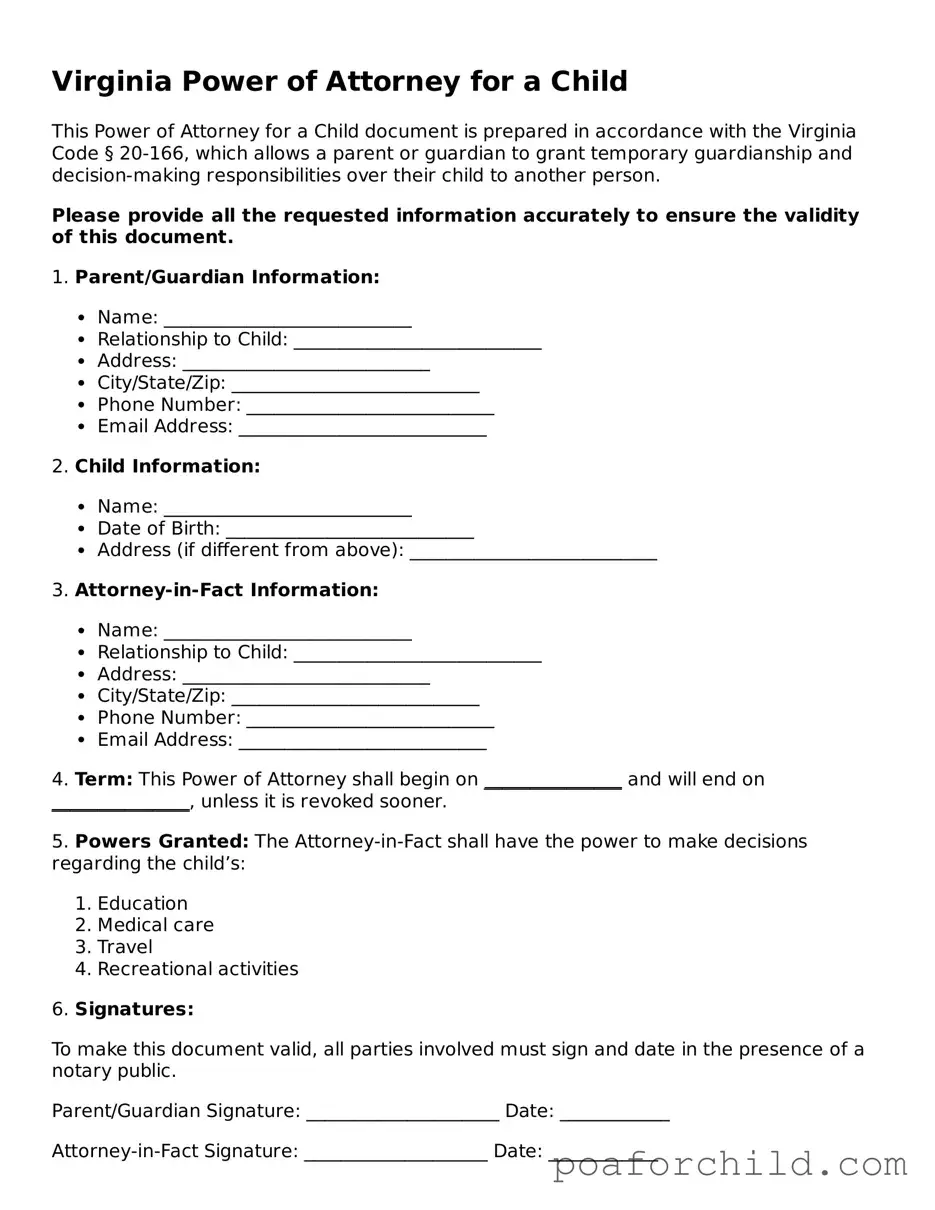Detailed Guide for Using Virginia Power of Attorney for a Child
Filling out a Power of Attorney (POA) for a child in Virginia is a significant step towards ensuring the child's welfare, especially when the parent or guardian can't be present due to unforeseen circumstances or planned events. Whether it's for a temporary period during travel, medical, or educational reasons, this legal document empowers another individual to make decisions on behalf of the child. Here's a straightforward guide to accurately complete the form, ensuring that it reflects your wishes and complies with Virginia law.
- Start by downloading the most current version of the Virginia Power of Attorney for a Child form from an official or reputable source. Ensure you have the correct form that specifically pertains to the guardianship of a child.
- Enter the full legal name and address of the parent(s) or current legal guardian(s) granting the power of attorney in the designated section at the top of the form. This identifies who is authorizing the power.
- Fill in the full legal name and address of the designated agent (the individual who will be assuming the responsibility on behalf of the child). Make sure this person has agreed to their role and understands their duties.
- Specify the full name and date of birth of the child or children to whom the Power of Attorney applies. If the document covers more than one child, ensure all names are accurately listed and clearly readable.
- Detail the specific powers being granted to the designated agent. This might include medical decisions, educational choices, or general welfare. Be as detailed as necessary to ensure there's no ambiguity in the powers being assigned.
- Indicate the duration of the Power of Attorney. Specify the start and end dates, keeping in mind this document cannot exceed 12 months in Virginia unless it's renewed.
- Honestly disclose any limitations or conditions you wish to apply to the agent's powers. This section is crucial for limiting the scope of authority if there are specific decisions or actions you wish to exclude.
- Both the granting parent(s) or guardian(s) and the designated agent must sign and date the form in front of a Notary Public. The notarization process is essential as it validates the identities of all parties and the authenticity of their signatures.
- Keep the original document in a safe but accessible place and provide copies to the designated agent and any relevant institutions like schools, medical facilities, or childcare providers.
By following these steps carefully, you'll create a valid and effective Virginia Power of Attorney for a Child that ensures your child’s needs are met even when you're not physically present. Remember, circumstances can change, so it’s wise to review and possibly update this document periodically.
